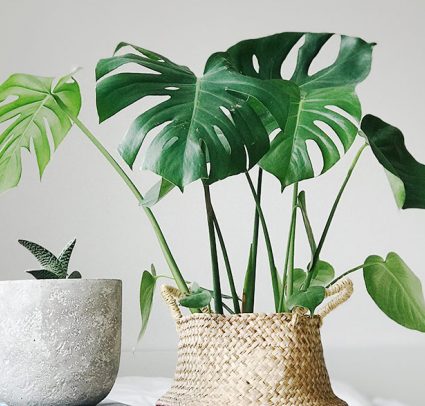Welcome to
Roger Mills EMDR
I am an experienced EMDR therapist working online in London and in East Sussex. I have been practising as an EMDR therapist for over 15 years and I have helped people with a wide range of mental health difficulties including stress and anxiety, low self-confidence, relationship problems, OCD, anger, low mood, depression and trauma
About EMDR
One of the fundamental ideas behind EMDR is that our mental health problems are mostly caused by experiences that were emotionally overwhelming, and which get stuck in our nervous systems.
EMDR can be used on adult traumas like being in a car accident. But it is also effective for problems like anxiety or low self-esteem. This kind of issue can usually be traced back to childhood, for example if you had parents or carers who were physically aggressive, if you were subjected to sexual abuse, or if you experienced loss, bereavement or family break-up. There are subtler ‘traumas’ which can also influence life profoundly as well, for example experiencing parenting in which you did not feel loved or valued.
Traumatic early experiences get stuck in us, a bit like a computer programme that is running silently in the background. And they often lead us to have a distorted sense of things in adult life. So, for example, a boss who offers a mild criticism might be seen as the same as the Dad for whom you were never good enough, triggering huge anxiety. Or the end of a relationship might feel unbearable because you experienced painful separation or loss when you were little.


EMDR begins by identifying the problems and their root causes, and by developing a series of resources which help us to feel emotionally stronger. We then focus on the traumatic experiences themselves using eye movements or tapping on one side of the body and then the other to detoxify the trauma. This process may sound a bit strange, but most people find that eye movements or tapping dissolves the emotional charge of the original distressing experience, and as that happens life in the here and now begins to feel much more positive.
Another important element in EMDR treatment is that we use ‘resource figures’ to ‘rewrite’ early, disturbing experiences. An example of this would be inviting a person who experienced critical and aggressive treatment from a parent, to re-imagine the distressing scenes but with their adult self present to support them. Using the creative imagination in this way we can change how the memory feels so that the dysfunctional computer programme stops running in the background.
Online Therapy
The lockdown rules that COVID imposed on all of us have transformed therapy and much of my work is now online, using Zoom, WhatsApp or Facetime. To begin with I feared this would be less effective. But in fact remote therapy seems to work every bit as well as face to face and some people find that it is actually easier to talk about difficult and painful experiences from the safety of home. Online therapy also has practical advantages with no journey to get to your therapist’s office and greater flexibility with appointment times.
How long does EMDR therapy take?
This is one of the impossible questions. Some problems – for example post-traumatic reactions to a car accident – can often be dealt with in a few sessions. But issues that are rooted in deeper, childhood issues will typically take rather longer. EMDR is a very powerful form of treatment and though the number of sessions can vary according to the problem and the person, EMDR seems to lead to much quicker solutions than many other forms of talking therapy.
How do I know if I need therapy?
People sometimes imagine that it is only right to start therapy if they are having a complete breakdown. In fact people seek therapy for all sorts of reasons and the main thing that they have in common is that something is causing significant levels of mental pain and distress. Seeking counselling does not mean that you are weak. More and more people are seeking therapy today, probably because the enormous stresses of modern life mean that many of us, perhaps most of us, experience unhappiness at times.
What issues can EMDR help with?
People come to me for help a wide range of issues. Here are a few of the more common difficulties that can be supported through EMDR therapy:
Feelings of stress or anxiety
Panic attacks
Relationship problems
Grief, loss or bereavement
Problems with addiction
Trauma and post-traumatic stress
Abuse
Depression
Problems with confidence or self-esteem
Anger management
Issues relating to sexuality
Difficulties at work or in retirement
Problems with family or school life


About Me
I have been working as a therapist for over 20 years. I have two Masters level qualifications in counselling and psychotherapy (from Regents College and from The Westminster Pastoral Foundation) and I have been an accredited counsellor with the British Association for Counselling and Psychotherapy since 2001.
I began my counselling training in my mid thirties. Before I moved into counselling I had had several different careers including lecturing in History of Art and working as a journalist on a Classical Music Magazine.
My counselling training covered a number of different approaches including Existential therapy, Psychodynamic therapy and CBT. For the last ten years I have focussed largely on using EMDR because I find it to be, by a distance, the most powerful and effective approach that I have worked with.
Although I now work exclusively in private practice I have had considerable experience of working as a therapist in the NHS and in council run mental health services in London. I have also worked for EAP companies (organisations that provide mental health support for businesses), and I spent a number of years as a therapist at one of the Priory Hospitals, focusing there on clients suffering from post-traumatic stress disorder.
As well as providing therapy, I have also worked as a trainer, writing and leading courses for counsellors and other professionals in areas such as stress management, post trauma counselling and sickness absence management.

Get in touch
I am happy to have an initial conversation, by phone, text or email, to discuss your issues and how EMDR therapy can help.
Phone/text: 0203 0511303
Sessions last an hour and cost £85. I normally see clients on a weekly basis.
I ask clients to give me 48 hours notice to cancel an appointment and I charge a full fee for cancellations with less notice
‘As someone who knows some of the world’s most famous trauma teachers I choose Roger as my personal ‘go to’ as an EMDR therapist. He’s made a significant difference to my well-being, is impeccably professional and I would recommend him to anyone.’
Mark Walsh, CEO Embodiment Unlimited
‘EMDR for myself has been life changing. Over the course of just three months I was able to change my outlook on life and find space to breathe mentally which has enabled me to achieve so many things that I previously thought were impossible. I would highly recommend the services of Roger to anyone who struggles with mental health issues.’
BH
‘I have benefitted greatly from the EMDR method of managing my anxiety with Roger. I have moved on considerably through EMDR and resolved several areas of great distress and anxiety within a matter of weeks. I would highly recommend EMDR to anyone who has serious anxiety and/or distress that is stopping them from moving on with their lives.’
RW
©Roger Mills
powered by WebHealer